
The Modern Era in world history explores transformative periods‚ from the Renaissance to the present‚ highlighting themes like industrialization‚ globalization‚ and major conflicts that shaped today’s world.
Overview of the Modern Era in World History
The Modern Era spans from the Renaissance to the present‚ exploring pivotal events and transformations. Key themes include industrialization‚ globalization‚ and major conflicts like World Wars and the Cold War. The Prentice Hall World History: The Modern Era textbook offers a comprehensive overview‚ covering these topics and their impact on shaping today’s global landscape. This period is crucial for understanding contemporary challenges and opportunities.
Key Themes and Concepts
Industrialization‚ nationalism‚ imperialism‚ and globalization are central to the Modern Era. The textbook explores these themes‚ along with the impact of World Wars and the Cold War‚ to provide a comprehensive understanding of how historical events have shaped the contemporary world. These concepts are essential for analyzing the interconnectedness of global societies and the challenges they face today‚ making them foundational to modern world history studies.
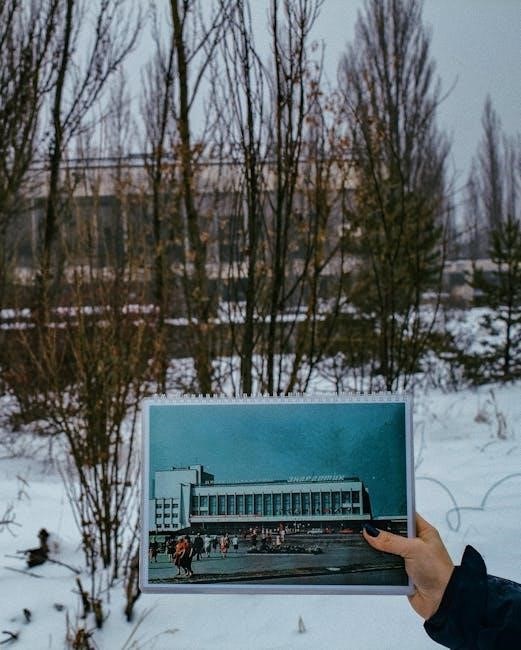
The Renaissance and Reformation (1300-1650)
The Renaissance sparked cultural and intellectual revival in Europe‚ while the Reformation challenged religious authority. Both movements laid the groundwork for modern thought and societal transformation.
Origins and Impact of the Renaissance
The Renaissance emerged in 14th-century Italy‚ fueled by trade growth and feudalism’s decline. It revived classical knowledge‚ sparking humanism and artistic innovation. Patrons like the Medici supported scholars and artists‚ leading to iconic works by Leonardo da Vinci and Michelangelo. This cultural revival spread across Europe‚ fostering intellectual curiosity and individualism. The printing press aided the dissemination of ideas‚ laying the groundwork for the Enlightenment and modern thought.
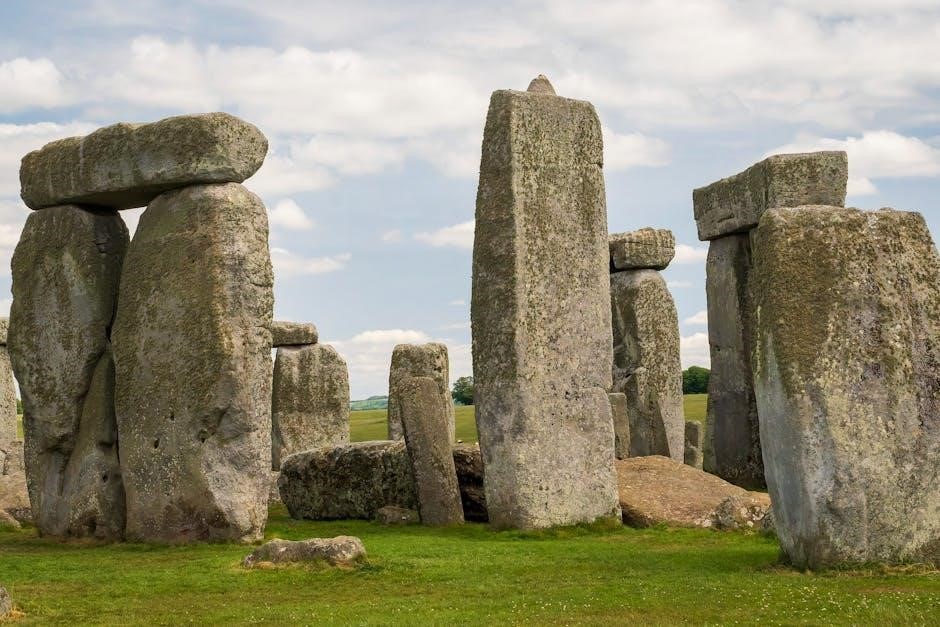
The Reformation and Its Consequences
The Reformation emerged in the 16th century‚ challenging Catholic Church authority. Figures like Martin Luther and John Calvin questioned doctrine‚ sparking religious and social change. The printing press spread their ideas widely‚ leading to the rise of Protestantism. This movement fragmented Christianity‚ influenced political conflicts‚ and reshaped Europe’s cultural and religious landscape‚ while also inspiring calls for individual interpretation of faith and governance.
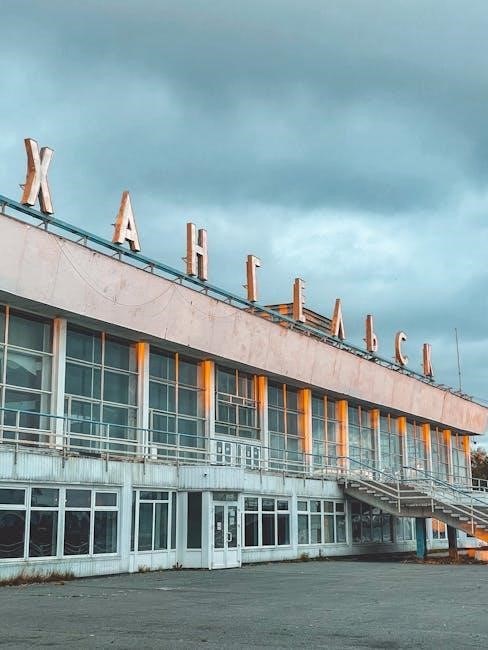
Enlightenment and Revolution (1707-1850)
This period saw the rise of Enlightenment ideas‚ emphasizing reason and individual rights‚ which inspired revolutions like the American and French‚ reshaping political and social structures globally.
The Enlightenment: Ideas and Influences
The Enlightenment emphasized reason‚ science‚ and individual rights‚ challenging traditional authority. Thinkers like Voltaire‚ Rousseau‚ and Locke advocated for democracy and freedom‚ inspiring political and social change. Their ideas spread widely‚ influencing revolutions and modern governance. This period laid the groundwork for Enlightenment values such as equality and human rights‚ reshaping Europe and beyond. The movement’s legacy endures in contemporary political and philosophical frameworks.
Major Revolutions: American‚ French‚ and Beyond
The American and French Revolutions were pivotal events in modern history‚ driven by Enlightenment ideas of liberty and equality. The American Revolution (1776) sought independence from Britain‚ while the French Revolution (1789) overturned monarchy and feudalism. Both revolutions inspired similar movements globally‚ reshaping political landscapes and advancing democratic ideals. Their legacies continue to influence modern governance and human rights movements worldwide.

Industrialization and Globalization
Industrialization and globalization transformed societies‚ driving economic growth and cultural exchange. These processes reshaped industries‚ economies‚ and international relations‚ creating a deeply interconnected modern world.
The Industrial Revolution: Causes and Effects
The Industrial Revolution‚ beginning in 18th-century Britain‚ was driven by agricultural improvements‚ technological innovations like the steam engine‚ and access to capital. It transformed economies from agrarian to industrial‚ sparking urbanization and societal changes. While it brought economic growth and new industries‚ it also led to overcrowding‚ poor working conditions‚ and environmental degradation‚ reshaping the modern world’s social and economic structures.
Globalization and Its Impact on the Modern World
Globalization‚ driven by technological advancements and trade expansion‚ has interconnected economies‚ cultures‚ and societies worldwide. It fosters economic interdependence‚ cultural exchange‚ and technological sharing but also raises concerns about inequality‚ cultural homogenization‚ and environmental degradation. The modern era sees globalization shaping global governance‚ labor markets‚ and consumer trends‚ creating both opportunities and challenges for nations and individuals alike in an increasingly interconnected world.

Nationalism‚ Imperialism‚ and Colonialism
Nationalism fueled identity and unity‚ while imperialism and colonialism reshaped global power dynamics‚ impacting cultures‚ economies‚ and societies through domination and resistance‚ leaving lasting legacies worldwide.
Rise of Nationalism in Europe and Beyond
Nationalism emerged as a powerful force in Europe‚ fostering unity and identity among diverse groups. It spread beyond Europe‚ influencing movements for independence and self-determination worldwide‚ reshaping political landscapes and cultural identities through unification and conflict‚ while emphasizing shared heritage and sovereignty‚ leaving a lasting impact on global history and modern nation-building efforts across continents.
Imperialism and Colonialism: Global Consequences
Imperialism and colonialism reshaped the world‚ driven by economic interests‚ political power‚ and cultural dominance. European and other global powers exploited resources‚ displacing indigenous populations and altering societies. While fostering cultural exchange‚ these systems often led to inequality‚ resistance‚ and long-term socio-economic disparities‚ leaving a complex legacy that continues to influence global power dynamics and cultural identities in the modern era.
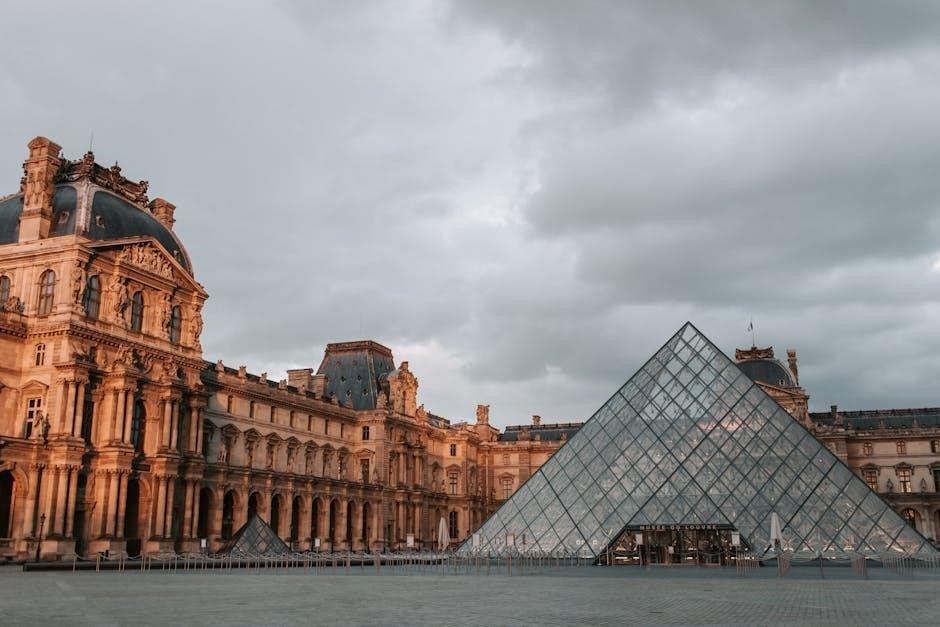
The 20th Century: World Wars and the Cold War
The 20th century was marked by devastating global conflicts‚ including two World Wars and the Cold War‚ which reshaped international relations‚ economies‚ and political structures forever.
World War I and Its Aftermath
World War I (1914–1918) was a global conflict involving major powers‚ sparked by political tensions and alliances. It caused unprecedented destruction‚ with millions of casualties. The war ended with the Treaty of Versailles‚ imposing harsh penalties on Germany. This led to economic instability‚ the rise of fascist leaders like Hitler and Mussolini‚ and ultimately‚ the seeds of World War II. The aftermath reshaped global politics and economies‚ fostering widespread resentment and setting the stage for future conflicts.
World War II: Causes‚ Events‚ and Outcomes
World War II (1939–1945) was triggered by the aggressive expansion of Axis powers‚ led by Nazi Germany‚ Italy‚ and Japan. Key events included the invasion of Poland‚ the Holocaust‚ and major battles like Stalingrad and Midway. The war ended with the atomic bombings of Hiroshima and Nagasaki. Its outcomes included millions of deaths‚ the formation of the United Nations‚ and the emergence of the United States and Soviet Union as superpowers‚ setting the stage for the Cold War.
The Cold War: Tensions and Global Impact
The Cold War (1947–1991) was a period of geopolitical tension between the United States and the Soviet Union‚ characterized by an arms race‚ proxy wars‚ and ideological rivalry. Key events included the Cuban Missile Crisis‚ the Berlin Wall‚ and the Space Race. The Cold War shaped global politics‚ economies‚ and societies‚ leading to decolonization‚ technological advancements‚ and eventual Soviet collapse‚ profoundly influencing modern international relations.
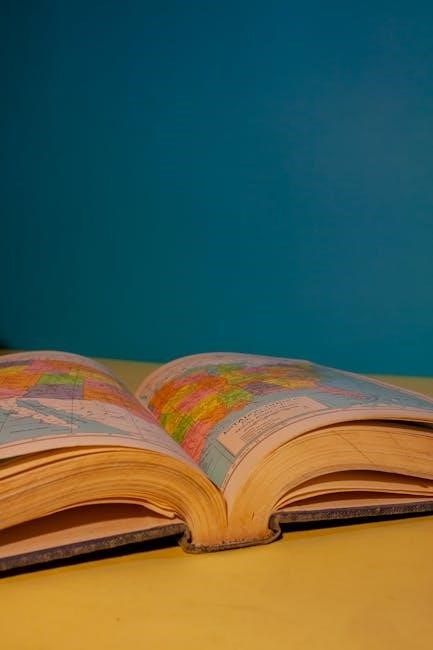
Decolonization and Modern Global Issues
Decolonization reshaped global dynamics as nations gained independence post-WWII‚ addressing self-determination and inequality. Modern issues like environmental challenges‚ economic disparities‚ and globalization continue to impact the contemporary world.
Decolonization and Its Effects
Decolonization reshaped global politics as European empires dissolved‚ primarily in the mid-20th century. Newly independent nations faced challenges like economic inequality‚ political instability‚ and social unrest. This period marked a shift toward self-determination and cultural identity‚ while also highlighting lingering colonial legacies. The effects of decolonization continue to influence modern global dynamics‚ emphasizing the need for equitable development and international cooperation to address historical injustices.
Contemporary Global Challenges
The modern world faces interconnected challenges‚ including climate change‚ political polarization‚ and social inequality. Technological advancements bring opportunities but also raise concerns about privacy and job displacement. Global health crises‚ like pandemics‚ expose vulnerabilities in healthcare systems. Economic instability‚ marked by debt crises and trade disputes‚ further complicates international relations. Addressing these issues requires innovative solutions and global cooperation to ensure sustainable development and shared prosperity for all nations.

Studying the Modern Era: Resources and Perspectives
Explore diverse resources like textbooks‚ digital archives‚ and open educational materials. The Prentice Hall World History: The Modern Era textbook offers comprehensive insights‚ while digital platforms provide accessible learning tools and global perspectives for deeper understanding of historical events and their modern implications.
Textbooks and Digital Resources
Key textbooks like Prentice Hall World History: The Modern Era provide comprehensive coverage of major themes. Digital resources‚ including PDF versions and platforms like Google Play‚ offer accessible learning tools. The Internet Archive and open educational resources further enhance accessibility‚ allowing students to explore historical events and their modern implications. These materials are designed to meet educational standards and support deeper understanding of world history.
Modern Perspectives on Historical Events
Modern perspectives on historical events emphasize interconnectedness and global impacts. Scholars now highlight diverse voices and cultural exchanges‚ offering a more inclusive understanding of history. Digital resources and open educational materials provide fresh insights‚ allowing students to analyze historical events through contemporary lenses. These perspectives help bridge the past and present‚ fostering a deeper appreciation of how historical developments shape today’s world and its challenges.
The Modern Era’s complex transformations‚ from industrialization to globalization‚ shape today’s interconnected world. Studying this period reveals how historical events continue to influence contemporary global challenges and opportunities.
Reflections on the Modern Era
The Modern Era‚ spanning from the Renaissance to the present‚ has been marked by profound transformations. Industrialization‚ globalization‚ and major conflicts like the World Wars and Cold War reshaped societies. These events laid the foundation for today’s interconnected world‚ highlighting both human progress and the persistence of global challenges. Understanding this period is essential for grasping the complexities of modernity and its lasting impact on humanity.
Relevance of Modern History in Today’s World
Studying the Modern Era provides insights into the origins of today’s global challenges and opportunities. Themes like industrialization‚ globalization‚ and political ideologies shape contemporary issues. Understanding historical events helps address modern problems‚ from economic inequalities to geopolitical tensions. The lessons of the past inform solutions for the future‚ making modern history a vital tool for navigating today’s interconnected world.